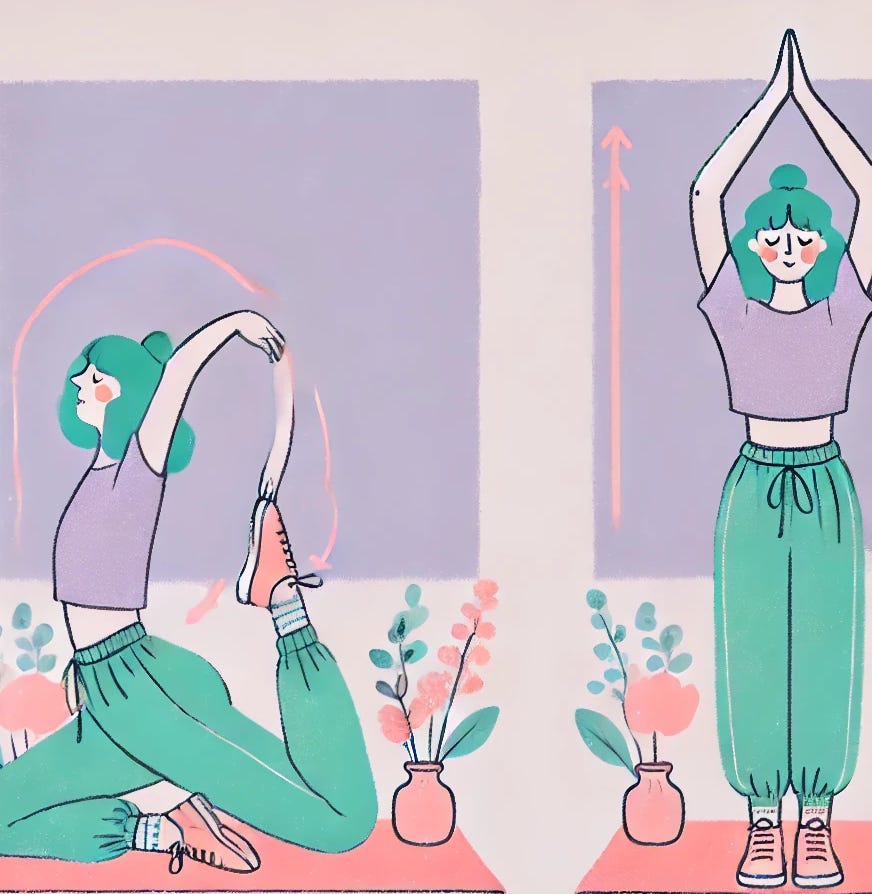wealth is enough
Wealth can be a complicated word. It brings up a lot. The first and most obvious implication is about money, yet it’s somehow different from rich. Chris Rock had a great bit about it: an NBA player is rich, but the person who signs their paycheque is wealthy.
That’s one way to think about it—that being wealthy is an order of magnitude larger than being rich. What could be more important than feeling complete financial freedom, like you can weather any storm and control your own destiny? If you’ve got enough saved up to feel okay all the time and do what you want, whenever you want, then maybe we can consider you wealthy.
Or maybe not. With the concept of ‘impermanence’, Buddhists will be the first to tell you that there’s no way to feel okay and do what you want all the time. No matter how much money you have, you won’t have unlimited freedom and you won’t feel positive emotions all day, every day.
This explains why many are defining the word not as something larger, but as something deeper. Maybe true wealth is about choice? Or maybe it’s about relationships and community? Or maybe wealth is health, or the experiences you have, or the contributions you make?
These ideas portray wealth as the happy, fulfilled mental state you get from a life of agency, connection, and purpose. Still, even if we define wealth as deeper than all the bling bling cash money in this way, we are still pinning it to things that are fundamentally impermanent.
You’re never fully going to be in control. You can’t predict how relationships evolve. Your health won’t last and that—among other things—will limit the experiences you can have and the contributions you can make. So where does that leave us?
Thankfully, I don’t think we have to go so grandiose to define wealth in a useful way. I’m starting to realize that what we really need to be wealthy is enough. The first question to ask is: enough what?
Money is still a big part of it. If you have money to pay the bills, that’s one kind of enough. If you have enough to lose your job and still pay the bills for a while, that’s a greater sense of security. Lump in a sense of community, a feeling of contribution, and an existence free of pain and suffering, you are truly prosperous.
But there’s another side to enough. To experience it, you first need resources and wellbeing, but you also need to be in a mental state where the money, freedom, relationships, health, and experiences you have feel sufficient. This is where enoughness gets interesting.
If you’re seeking to change your state of mind or find spiritual enlightenment, but you truly don’t have enough to meet your own basic threshold for well-being, you can’t ignore that. Yet after you reach that threshold and you’re finally able to cover your material and mental needs, your path to wealth must evolve.
At some point, the pursuit of more, more, more starts to take away from your well-being. You find yourself aggressively craving more than enough in a way that undermines your ability to be okay. You spend so much time obsessing over success, reputation, comfort, and pleasure that you lose balance with things like health, relationships, and purpose.
At that point, thinking of wealth as enough naturally guides you to change your mindset. Counterintuitively, letting go of the attachment to having more becomes the next step in your path to true wealth. After material success, the wise and truly wealthy start to open up spiritually, focus on philanthropy, and find other ways to be altruistic.
So to sum up this way of pursuing wealth, you get what you need, but you also seek unflinching clarity on exactly how much you need. Once you reach that pivotal threshold of enough, you divert more and more energy away from accruing resources toward a state of okay-ness and generosity in mind, body and spirit. You cultivate a felt sense that what you have is truly enough for you and yours.
You might think of a yogi as someone who is very flexible, comfortable standing on their head, and looks great in Warrior Two. That’s not quite right. A yogi is someone who explores their limits and does not unnecessarily push beyond them. They enjoy that sweet spot without self-criticism or social comparison. In fact, they find a kind of love and self-compassion at the limits of their body and mind, but no further. A spiritual grounding evolves from that balance point, all because they know how much is enough.
I’ve been thinking about this arc of enoughness as I approach the summit of a mountain: finishing my book. What does success look like? There are so many ways to characterize it: sell a lot of books, change people’s lives, get critical acclaim, attract subscribers, win awards, earn money, etc.
I’ve boiled it all down to something simple. I enjoy writing. So for me, success is this: in a year, I want to still enjoy writing. Instead of feeling like I’m done with it completely, I want to feel like maybe writing another book would be fun. If, when 2026 or 2027 roll around, I am game to pitch a whole new proposal to the publisher, that’ll mean it was all worth it somehow.
A month and a half before I launch, it’s hard to parse how exactly that might happen. Maybe I’ll need to make money and sell a lot of books. Or maybe it’s about getting on my favorite podcasts, or hearing about readers who were deeply impacted. Or maybe I just need to feel proud of what I’ve created. Whatever happens, I hope it’s enough.

